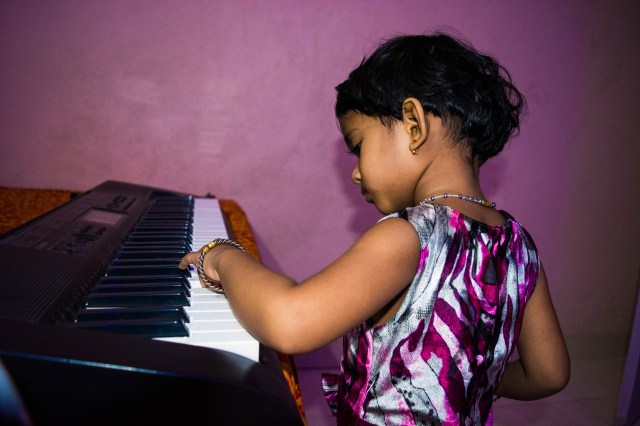First there was Ms. Amy Chua, railing against the virtues of “Western parenting,” in her self-aggrandizing book Battle Hymn of the Tiger Mother and last year’s Wall Street Journal article, “Why Chinese Mothers are Superior.” Now, it seems, the “Western parents” are now battling it out amongst each other in this latest WSJ firestorm, “Why French Parents are Superior,” an excerpt of Pamela Druckerman’s Bringing up Bébé. Pamela, Pamela, Pamela. My goodness. Weren’t those Mommy Wars from a few years back bad enough? Haven’t we evolved as a culture so that we no longer feel the need to engage in such useless and petty conversations? Or does the Wall Street Journal just know how to beat a not-that-interesting debate into the ground? Heck, they couldn’t even come up with an original title. My mom always taught me not to recycle headlines, but ah well.
So hey, in keeping with Wall Street Journal’s theme of keeping the battle of the parenting styles alive and well lit, I’d like to share an excerpt from my soon-to-be-written tell-all memoir. It’s called American Mother: Out There and Uncensored.
Top 10 Reasons Why U.S. Parents are Superior:
1. We’re seen AND heard. Oh sure, black and gray are nice colors and all and a beret could serve as a semi useful head covering – but only if you don’t mind looking like a complete dork. Mark Twain was totally right when he wrote The Innocents Abroad and little has changed in the hundred-plus years since. Americans are still flashy and a bit messy. Our clothes are bright and garish. And what’s the problem there? C’est bon! How else can you expect your kids to get ahead in the world if they don’t stand out and express themselves? Grab your little ones and repeat after me: We’re loud and we’re proud! I’m sorry, what did you say? I CAN’T HEAR YOU! Louder, s’il vous plait. WE ARE LOUD AND PROUD! Much better. Oh, and P.S.: Did you know that neon is back in for Spring 2012? My daughter just got a supercute orange purse at Tar-zhay that blinds me whenever I walk into her room. J’adore!
2. Our kids are #1. Who represents the next generation? Me? You? That old guy down the street? Please. When everything goes to helle, who are you going to turn to? That’s right, children are our future and they deserve our sincere round-the-clock attention. Here’s how I do it. Say, for example, my child wants a snack. “Bien sûr!” I say, “go help yourself to some local, sustainably-produced sliced organic apples in your special drawer in the fridge.” I’m teaching them independence. Ditto for media. My kids have about 500+ 24-hour kid-friendly educational channels and DVDs to choose from. And they know how to operate our complicated system with multiple remotes and set top boxes and all the rest. Don’t tell me this isn’t part of a technology-based education. The French simply cannot compete. Did I mention that I also download educational apps on my iPhone? My kids are really good at this too. They’ve cracked my password and figured out how to make major online purchases all without my involvement. See, more independence. Because my children don’t attend government subsidized child care programs from 8:30 am to 4:00 pm every day and I don’t have a full-time nanny like most middle class French mothers, I’ve taught them well. All on my own. See what a good job I’m doing?
3. Our food is better. Have you ever been to a European grocery store? There’s weird stuff on the shelves and the layout doesn’t make any sense. Half the time, if you get there after 3:00 pm, the bread is gone. What gives? Also, our favorite brands, the all-American wholesome brands that are so engrained in our daily lives (and in-grained, yes, that too), either aren’t there or have been renamed or repackaged. Did you know you can’t even get plain Cheerios in Paris? It’s true. Basically, U.S. grocery chains rock. You’ve got high-end and lower-end, specialty groceries, and gluten-free galore. And then we’ve got that whole farmer’s market thing which I just love. Fresh squeezed beet juice, hello! I’m not saying that there aren’t equivalents in France or anywhere else in Europe, I’m just saying that our way is better. Fine, they have better cheese. But for everything else – I’ve got two words for you high and mighty Euro mamas: Trader Joe’s.
4. We like anything expensive and expletive. OMFG, really? Yes, really. Do you know how many swear words my kids know? All. Of. Them. Why? Because they heard them on U.S. network primetime television. And maybe a few cable shows owned by corporate America. It’s called vocabulary building and being prepared for the 21st century – or the 22nd century, or what century are we in again? Anyway, it’s cultural awareness. And as for expensive, let me tell you. Both of my kids asked for their own iPads this year for Christmas. As well as computers. And new Wii games. And a new car. And a new house. We’re working on it. Because, like I said, my kids are #1 and they deserve the very best.
5. We’re buzzing with activity. Sit still in a chair? Au contraire! The whole sitting in the café thing with well-behaved children is so over-rated. We’ve got places to go! Things to do! The drive-thru Starbucks concept, perhaps the best modern parenting solution in recent history, is très American. Druckerman claims the French way is better because the parenting style forces the kids to adopt to the adult way of life and not the other way around. Seriously, where’s the fun in that? Let kids be kids! It takes forever for them to grow up anyway, so we might as well focus on savoring every single bit. Ms. Druckerman also spends a lot of time rehashing that old study from the 1960s, the marshmallow effect, claiming that teaching kids the virtues of delayed gratification can do wonders for stress and anxiety later in life. Pardonnez-moi, but marshmallows are gross! Of course my kids can wait more than 15 minutes before they take a bite of one nasty marshmallow. They can wait their entire lives! Ugh, so disgusting. Speaking of… you know what else is nasty? Nutella. And snails. And paté. And foie gras. Blech. Don’t get any of that stuff near my family, ever.
6. We’re enlightened. Pop quiz: who has a bigger parenting self-help section in the warehouse style McBookstore. Oh, I’m sorry, France, you don’t have any McBookstores? Quel dommage! Our authors are churning out so much expert advice, the parenting experts are now building entire platforms writing about being an expert on other parenting experts. Which means that we’re smarter than everyone else, so there. Also, we have parenting reality shows that show off how creative and diverse and free-thinking we all are. Would a French mother ever write about how superior her parenting is? No, because it’s boring, and so are her kids. And yet… an American woman living in Paris? Oh la la, Bringing up de Bébé gets a blurb in the Wall Street Journal and a spot on the Today Show. As a final note, I would like to remind you that this little diatribe you are reading now is a…parenting book excerpt! Give me a few minutes and I’ll get it up on Amazon.com. $0.99 and it’s yours.
7. Our manners make way more sense. Now, I’m all for “please” and “thank you” and making sure the kids are fully engaged with a Disney movie before I sit down to down a bottle of wine and some imported cheese with a fellow mom friend, but honestly, if they politely wait for a break in the conversation, it’ll be hours before someone comes to wipe a bottom or provide another round of juice boxes. Just state your needs! My kids are great at this. I’ve taught them to ask for what they want, when they want it. Loud and clear! They are so skilled in this area. Oh, it just brings a twinkle to my eye every time we’re at the grocery store and people four aisles down know that I’ve just put two cartons of ice cream in my cart thanks to the loudspeaker-style voices emanating from my savvy little personal shoppers. How else would I have known we needed ice cream just that instant? American children are clairvoyant. No matter where we go, everyone smiles at me and gives me that look that says: your kids are so adorable! Everyone.
8. We think “non” is complete nonsense. Confession time: I was spanked as a child. Often. Both of my parents also did that whole “stern look,” thing and gave that “we’re really disappointed in you,” speech that got so tiresome over the years. Both of them lived in France for several years and met in Paris, so you gotta wonder. And just look at me now: all that discipline resulted in beaucoup de success! (Author’s note: if you even think about forwarding this to my mother or having a private spiritual conversation with my dead father, I will give you the silent treatment and “the look” for all eternity. Don’t test me! I mean it! That means YOU cousin Jennie… and Linda too! So STOP IT RIGHT NOW). See how silly this is? If you say yes to your kids all the time like I do, you can avoid unnecessary parent/child conflict and resentment issues that can last into adulthood. Just go oui, oui, oui all the way home.
9. We know how to snack. Isn’t it just a little too convenient for those French women who never get fat that le petit bébés only get un petit snaque around 4:00 pm each day. That’s because they are in school all day and don’t have access to organic, healthy food in their personal refrigerator compartments at home. Everyone knows that you are supposed to snack all day long. Dr. Oz says so. And I quote: “Snacking helps your metabolism stay well-tuned, keeps you from sabotaging a well-meaning diet and prevents ravenous overeating at mealtimes. It keeps blood sugar level so you aren’t irritable and helps you focused. Kids get much of their nutrition throughout the day from snacks.” He’s European by the way—and skinny—in case you hadn’t noticed.
10. It’s free to be, silly, not free to brie. Here’s my main problem with French-style parenting or any “superior” style parenting for that matter. It’s us vs. them. Good vs. better. It’s: I’m superior… and you, you parent over there? Well, you basically suck. Honestly, there is so much more to life. I am so tired of the whining. I’ll take a toddler tantrum in the middle of a chic Parisian café or a baby who doesn’t sleep through the night or a free-thinking “underachieving” fat American kid any day before I spend even one more minute nitpicking parenting styles and cultures. That whole East vs. West Tiger mom nonsense from last year has merely been narrowed to West vs. farther West. Next thing you know, the WSJ is going to run an excerpt on why California parents are superior to New York parents or why the New Zealand way is better than the Hawaiian way (Author’s note: I would like to research this! Can someone send me on an all-expense paid research trip?). Until then, my fellow parents, let us discuss. Or not.
What camp are you in: “I bleed red, white and blue” or “Heck, I’m moving to France!”?
— Allison Ellis
photo courtesy of tswarek via Flikr






















